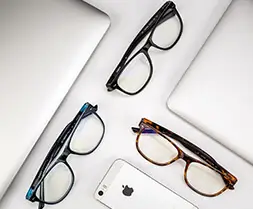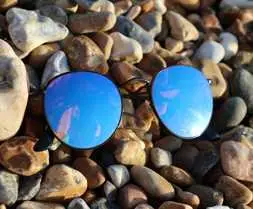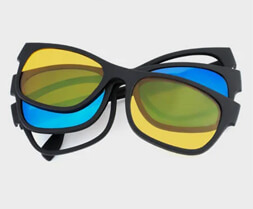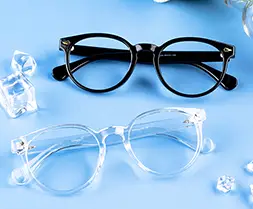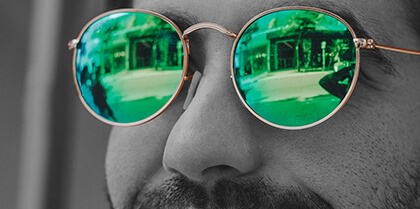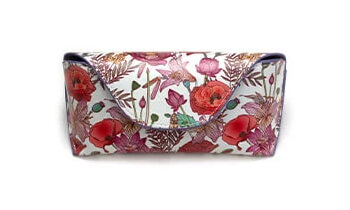Prescription Eyeglasses have long been a necessity in the lives of many people, the process of daily wearing glasses inevitably encounters the lenses to become dirty, and recently this phenomenon has caused a lot of discussion.
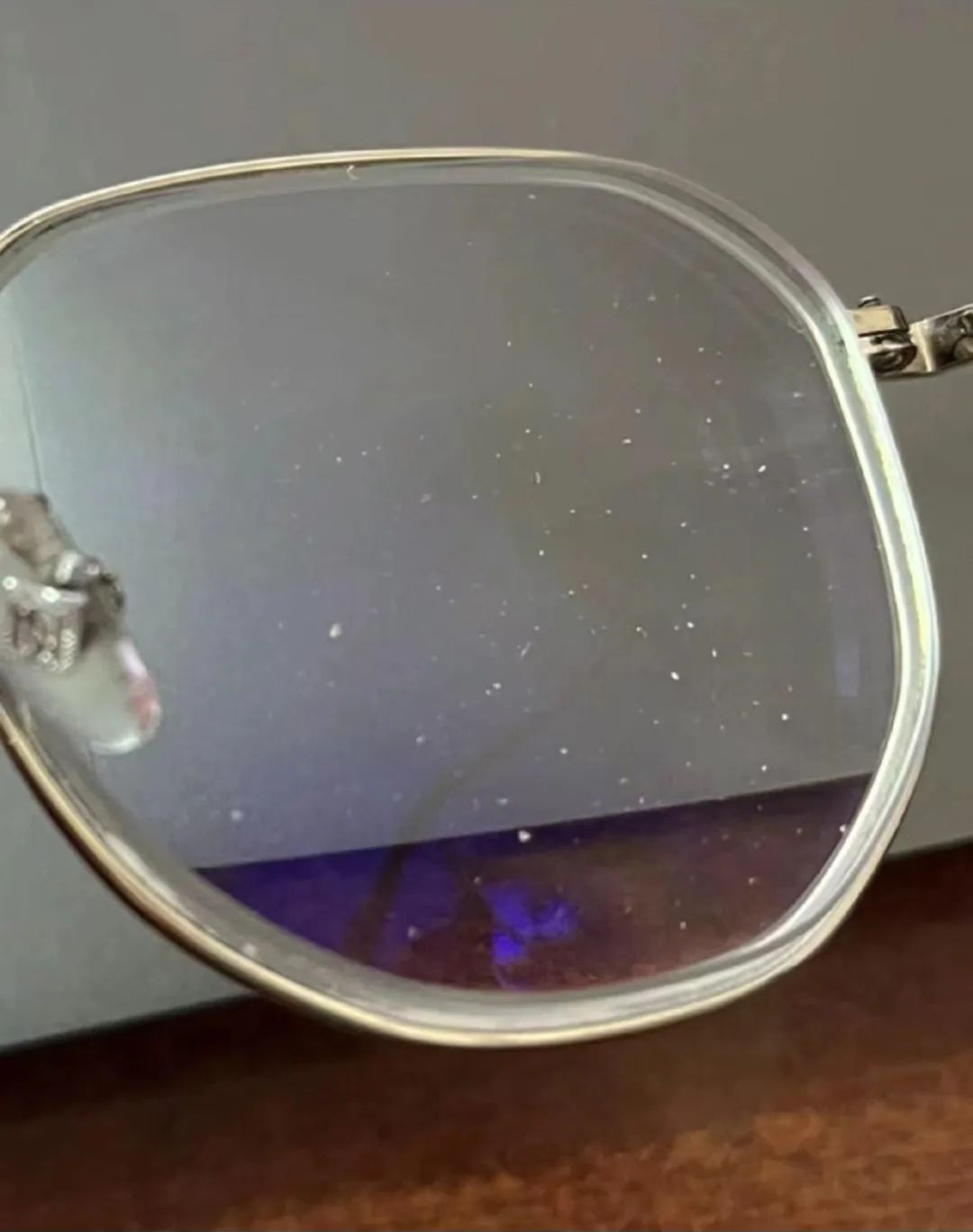
Small white dots often appear on the lenses of eyeglasses and reappear after wiping for some time.
The comment section is full of opinions; some think it's dust, some think it's dandruff, and some think it's corneal epithelium shedding, so what exactly are these frequent small white dots?
What else can the white spots on the lenses be if not dust?
If you find that the white dots on your lenses are randomly distributed, that wiping them with tissue makes them greasy and sticky and that you often have red, itchy eyes and missing eyelashes, then you probably have blepharitis.
To understand what blepharitis is, it is important to first understand what the lid margin is. Our eyelids are divided into upper and lower eyelids, and the edge of the upper and lower eyelids is the lid margin.
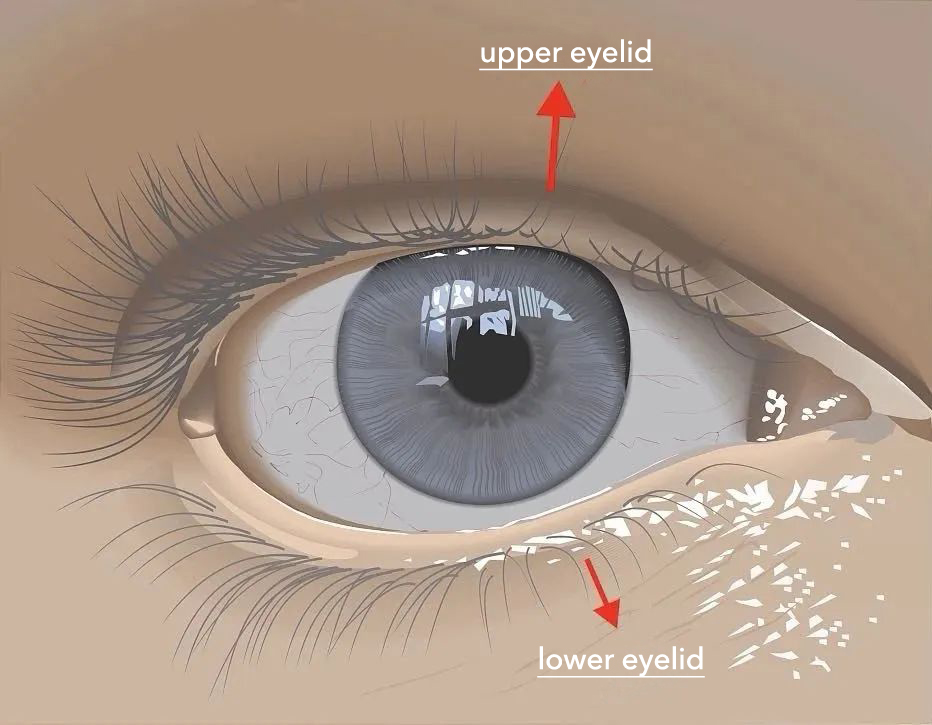
upper eyelids and lower eyelids
Blepharitis is a common ophthalmic disorder that occurs in the tissues of the lid margin area and is predominantly a chronic inflammatory condition involving the lid margin, eyelash capsule, and glands. The function of the lid glands is to secrete oily substances that lubricate the lid margin and prevent tears from flowing out of the conjunctival sac. If there is inflammation of the lid margin, this leads to abnormal secretion of oil from the lid glands, and this buildup of oil attracts to the eyelashes and splashes outward with each blink, landing on the lenses as the small white dots you see.
The onset of blepharitis is slow, so if you stay up less and watch fewer electronic devices, you'll be fine, and there's nothing better to do about the small white spots on your lenses than to pay more attention to cleaning them.
However, if the itchy eyes, foreign body sensation, dry eyes, and congestion at the edge of the eyes become more pronounced and severe, it is important to see a doctor in a timely manner, as it will not only become congested and eroded in advanced stages but will also further reduce your vision.
These four types of people Please pay attention in daily life
There is a lack of epidemiological findings on blepharitis in the general population, both domestically and internationally, but blepharitis is usually not contagious and can occur in all age groups, and these four groups require more attention in daily life:
01. People who do not pay attention to eye hygiene
The presence of long-term bad eye habits can greatly increase the chances of bacterial infection of the eyelids, so beware of blepharitis coming straight to your door!
02. Long-term use of poor quality cosmetics people
Because of the presence of chemicals of unknown composition in poor-quality cosmetics, long-term use can seriously damage the natural environment of the eyelids, causing a decrease in bacterial resistance and leading to the development of blepharitis.
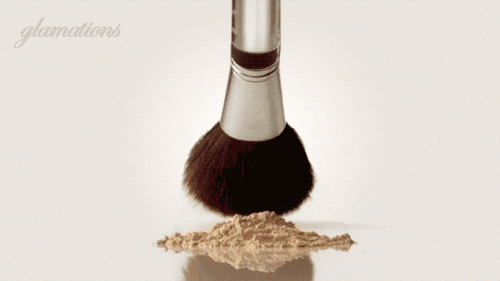
some poor-quality cosmetics
03. People with malnutrition and anemia
The occurrence of blepharitis is also strongly related to one's own physical condition, and people with poor health are also susceptible to blepharitis.
04. People with self-existing skin diseases
Self-existing skin conditions such as allergies, eczema, seborrheic dermatitis, etc. tend to lead to more sebum, creating an environment suitable for bacterial growth, which can lead to blepharitis.
Preventing Blepharitis These habits are essential
To eliminate blepharitis from your daily life, it is essential to develop scientific eye and diet habits.
1. Pay attention to eye cleanliness and reduce the use of eye cosmetics
The chemicals in cosmetics can easily cause irritation and damage to our lid margins. Don't often "color" your eyes for beauty, and if you use eye cosmetics, remember to wash them thoroughly to leave no trace.
2. Avoid staring at the screen for a long time, learn eye care
After an hour of work or study, standing up and moving around to look far away or green not only prevents blepharitis but also relieves eye fatigue, killing two birds with one stone. In addition, people who often operate in front of a computer should also pay attention to supplementing vitamins A and B, especially vitamin B2 in small doses.
3. Maintain a balanced diet with less oil and meat and more fruits and vegetables
Eat less spicy and warm foods, it is advisable to eat more fruits and fresh vegetables, especially foods containing vitamin A and vitamin C, such as carrots, kiwi, oranges, etc.



